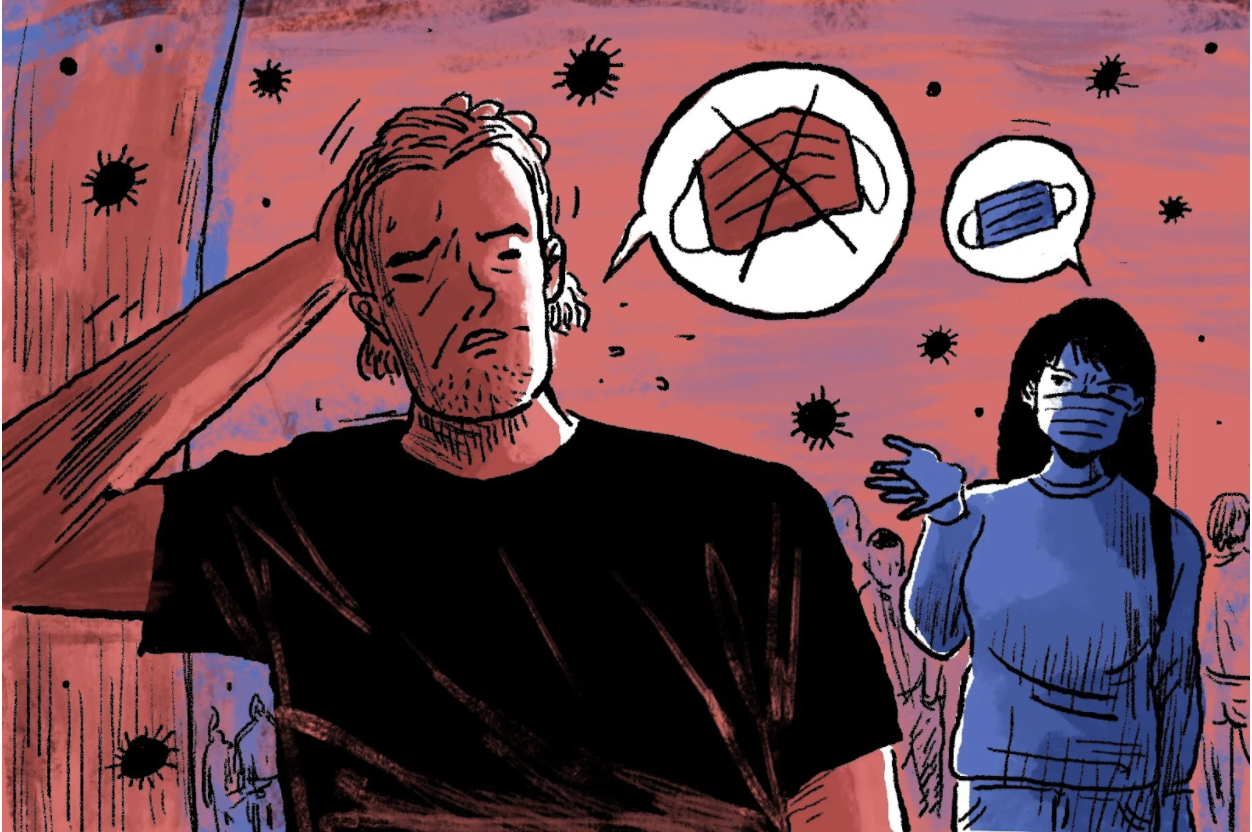
Despite being at a higher risk for COVID-19 related death than women, men are still less likely to wear masks outside their homes than any other gender. One study found that the reason many men decline the use of masks is due to their perceived associations with weakness and shame. But how did a preventative health measure morph into a symbol of emasculation? Likely through the lens of what we call “traditional masculinity.”
For centuries, western civilizations have viewed masculinity and femininity as complementary opposites: men must fight and protect, women must nurture and support. This mode of thought—though largely incorrect and outdated—still plays a large part in our perception of gender today, as illustrated by the association of weakness with mask-wearing. Under the gender roles of traditional western society, men are supposed to fight when faced with a threat. The problem? You can’t “fight” a virus through methods associated with traditional masculinity (strength, physical stamina, etc.). Rather, the bulk of prevention relies on traits more commonly associated with traditional femininity, like caring for the health of others. However, if our view of femininity is also inextricably linked to weakness as masculinity’s “opposite,” it’s possible that the root of men’s objections to masks is not their implications of weakness, but of womanhood.
Obviously masculinity in and of itself is not a harmful thing. However, when our definition of what it means to be masculine is so restrictive and fragile that one’s manhood can be “revoked” at any time, the resulting phenomenon can be not only problematic, but life-threatening.
